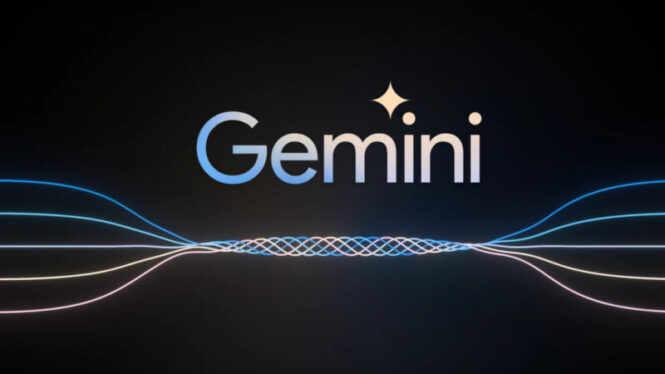
Enlarge / The Google Gemini logo. (credit: Google)
On Wednesday, Google announced Gemini, a multimodal AI model family it hopes will rival OpenAI’s GPT-4, which powers the paid version of ChatGPT. Google claims that the largest version of Gemini exceeds “current state-of-the-art results on 30 of the 32 widely used academic benchmarks used in large language model (LLM) research and development.” It’s a follow-up to PaLM 2, an earlier AI model that Google hoped would match GPT-4 in capability.
A specially tuned English version of its mid-level Gemini model is available now in over 170 countries as part of the Google Bard chatbot—although not in the EU or the UK due to potential regulation issues.
Like GPT-4, Gemini can handle multiple types (or “modes”) of input, making it multimodal. That means it can process text, code, images, and even audio. The goal is to make a type of artificial intelligence that can accurately solve problems, give advice, and answer questions in various fields—from the mundane to the scientific. Google says this will power a new era in computing, and it hopes to tightly integrate the technology into its products.
Read 13 remaining paragraphs | Comments


